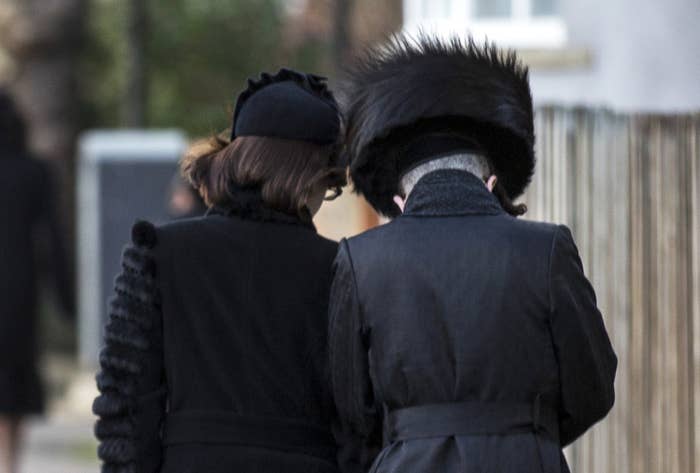
A transgender woman has been refused direct access to her five children by a family court judge who said there was a risk they would be shunned by the strict orthodox Jewish community they live in.
She is the biological father of the children, who are aged between 2 and 12, and has not seen them since she left the family home to live as a woman in June 2015. She applied through the courts in 2016 after being denied access by the children's mother.
Through her lawyers, the woman argued that she should be sensitively reintroduced to the children, who should be helped to understand her new identity. According to the judgment, she said "the opposition of the community should be confronted and faced down".
But Mr Justice Peter Jackson, sitting at the family court in Manchester, ruled on Monday that the woman – who can be referred to only as J – could only be permitted to see her children four times a year and suggested this might coincide with birthdays and holy days.
The family, who cannot be identified for legal reasons, are part of the city's Charedi community, which adheres to a strictly orthodox interpretation of Judaism in which access to mass media is not permitted. There are around 50,000 Charedim in the UK, mainly based in north London.
While the children's mother accepted that the woman should have some contact, she argued that direct regular contact could result in the family being shunned and ultimately having to leave their community.
The former couple, who are both in their thirties, were married in 2001 via an arranged marriage. The transgender woman claimed in court evidence that the mother had told the children she had died – but the mother disputes this and says she told them the woman was in London and "not well".
The woman is undergoing hormone therapy and is considering gender reassignment surgery, the judgment said. She told the court she had felt uncomfortable with who she was since the age of 6.
"She could not expect any sympathy so she kept silent and prayed to God to
make it go away," the judgment said. She used religious devotion as a way to suppress the problem and twice tried to kill herself, although since transitioning she has not had any suicidal thoughts.
She claims to be the first trans person to have left the Charedi community in the UK and told the court: "so they have to get rid of me – I have sympathy with that".
The children's mother spoke of the shock of learning that her former partner was transgender and said she didn't leave the house for three months.
The mother said that while the trans woman had been a loving parent to the children, their strict religious schools would not allow other children to play with them if they were in frequent direct contact with her. The family would risk, she argued, not being invited to events and festivities because of the community's nervousness about LGBT people.
Summing up, the judge said it was the "sad reality" that it would be too damaging for the children to be in regular direct contact with the person they still consider to be their father.
"In the final analysis, the gulf between these parents – the mother within the ultra‐Orthodox community and the father as a transgender person – is too wide for the children to bridge.
"They would be taught one thing in their daily lives and asked to do the opposite on repeated, conspicuous forays into the outside world, which they would have to keep
quiet about afterwards.
"I therefore conclude with real regret, knowing the pain that it must cause,
that the father’s application for direct contact must be refused."
Making an order for indirect contact, he added: "I also reject the bald proposition that seeing the father would be too much for the children. Children are good-hearted and adaptable and, given sensitive support, I am sure that these children could adapt considerably to the changes in their father.
"The truth is that for the children to see their father would be too much for the adults."
The ruling was criticised by KeshetUK, a charity which works to eradicate discrimination of LGBT+ people within Jewish communities in the UK.
"We are saddened that part of our community fought hard to keep five children away from one of their parents," it said in a statement.
"We are disappointed in a family court and social care system that failed to find a way for these children to continue a meaningful relationship with both their parents. Because of transphobia, a choice has been made on behalf of these young people that they should grow up without knowing the love for, or feeling the love of, an adoring parent.
"KeshetUK believes that no one should be forced to choose between love for their family and their Jewish community and heritage. Every Jewish community can and now must find ways to prevent children from suffering such unnecessary pain and loss."
